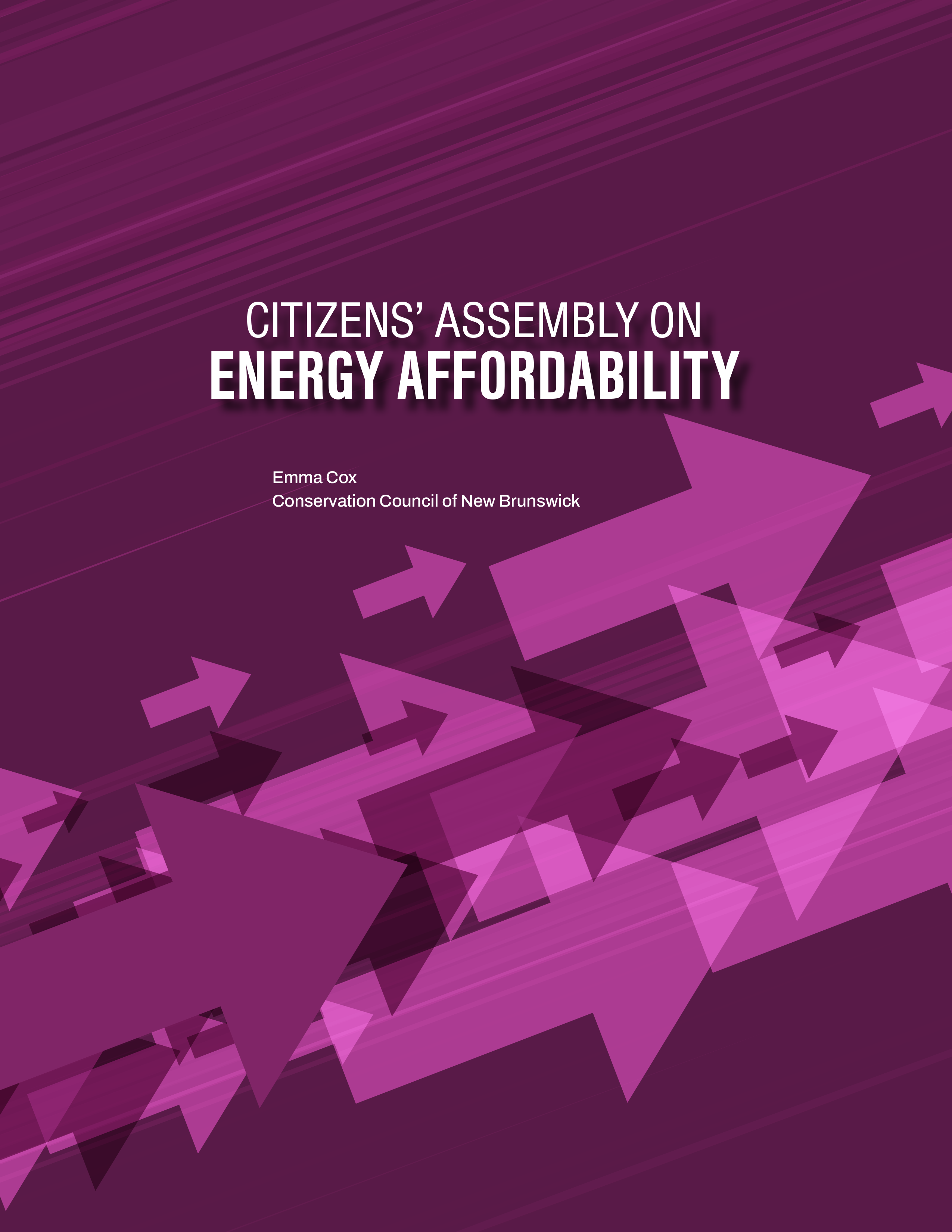The New Brunswick Citizens'
Electricity Affordability Roadmap
New Brunswick citizens are leading the way in creating a fair and sustainable energy system. Join the movement by signing on to the petition today!
New Brunswickers are speaking up on electricity!
In February 2023, the Conservation Council brought together a small group of New Brunswickers with different perspectives for a deep dive into the province’s electricity landscape, tasking them with identifying the principles, policies and programs that would improve household energy efficiency, reduce household energy costs and address energy poverty.
The resulting Declaration on Electricity Affordability, developed collectively by assembly participants, envisions an electricity system built on transparency, accountability and trust and provides recommendations to guide government and utilities toward a fair, secure, and sustainable electricity future.
Amplify their work by adding your name to the declaration.
Add your name in support of their recommendations on
Electricity Affordability
Download the complete declaration (PDF) or browse through our declaration below:
DECLARATION
Citizens' Assembly on
Electricity Affordability
WHEREAS affordable electricity is essential to our quality of life, health and safety, and is a necessity of modern society.

Principles
WE BELIEVE the following principles should guide government decision-making about the province’s electricity system and the operation of NB Power:
- Demonstrates NB Power is frugal and controls its own costs before asking for a raise through rate increases;
- Shows NB Power is trustworthy because it is honest and transparent;
- Displays accountability by reporting on key performance indicators, issues report cards;
- Creates fair, balanced and equitable outcomes for all ratepayers (e.g., industry pays its fair share, not just households);
- Ensures electricity is accessible to all that need it;
- Operates with citizens’ best interests at heart;
- Commits to progressive policy changes and not staying with the status quo; and
- Consider the social effects its policies have on New Brunswickers.

Goals
WE BELIEVE the following goals should guide government decision-making about the province’s electricity system and the operation of NB Power:
- Affordable for all ratepayers (e.g., low- to moderate-income households);
- Reliable and safe;
- Low-carbon and sustainable from an environmental, social and economic point of view;
- Includes potential for cooperative models (citizen-owned and community-owned projects); and
- Includes decentralized options (e.g., mix of distributed energy sources).

Electricity Strategy
WE BELIEVE the province’s electricity strategy should be based on the following policies:
- Builds a shared electricity vision through public engagement;
- Protects our publicly-owned electricity system;
- Builds an electricity system that is only as big as it needs to be;
- Creates an integrated electricity system (regionally and nationally) for reliability and to support more renewable and non-polluting energy (e.g., wind, solar, geothermal, hydro, biogas);
- Strengthens institutions like the Energy & Utilities Board (e.g., for accountability and transparency);
- Reforms the Electricity Act to eliminate government interference and provide public oversight to ensure evidence-based decisions (e.g., technically- and financially-sound decisions that take
into account social and environmental effects); - Reforms incentives (e.g., net metering and taxation of solar, policies);
- Builds a system that maximizes energy efficiency from generation to consumption;
- Provides transition support for workers to train for employment within the new electricity system;
- Pursues rate design that ensures:
- Base electricity is the cheapest possible rate;
- Electricity bills are tax-free because it is necessary for modern life;
- Tiered rates so that the more you use, the more you pay—particularly for industry; and
- Consideration of time-of-day use rates in response to electrification and to reduce peak loads;
- Strengthens building codes; and
- Ensures an energy-literate population, with energy education as a priority.

Programs
WE BELIEVE the following programs should be included in the province’s electricity strategy:
- Expand the Enhanced Energy Savings Program eligibility requirements to include moderate to middle income:
- Expand eligibility for people who are using a different source of heating (e.g., oil);
- Remove barriers that make participation difficult;
- Increase funding to service more homes each year;
- Explore the use of building energy labeling (e.g., following a model used in the U.K.);
- Target landlord energy efficiency to:
- Provide more power to renters to request efficiency upgrades;
- Prevent rent increases when upgrades are performed;
- Expand EV, Hybrid and EV charger rebates to make them more accessible:
- Add micro-electric vehicles to the rebate program (e.g., electric bikes, trikes, cargo carriers);
- Transition towards electric vehicles for public and school transportation (buses, trains); and
- Ensure solar panels are affordable for households (e.g., reducing the upfront costs):
- Establish a competitive buyback program for households to sell excess energy to the grid;
- Eliminate tax on excess energy generated by home solar panels;
- Create bulk-buy solar panel programs for communities;
- Explore the potential of electricity bonds to fund the electricity system transition (solar farm bonds
- or wind farm bonds) to encourage citizens to buy into the transition; and
- Recognize that rural communities have different program needs than urban communities.





